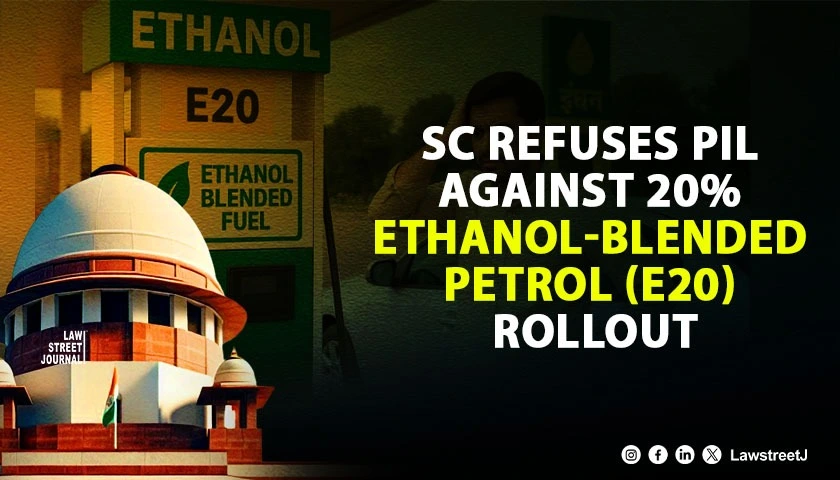NEW DELHI: The Supreme Court Monday declined to consider a PIL against the Centre's policy of rolling out 20 per cent ethanol blended petrol (E20) without providing the consumers an option to purchase such a fuel, and due to adverse impact on the fuel efficiency of the vehicles.
"We are not inclined to entertain the plea. Dismissed," a bench led by Chief Justice of India B R Gavai said to the PIL was filed by lawyer, Akshay Malhotra.
The court took into record the central government's claim that E20 fuel benefitted sugarcane farmers.
Senior Advocate Shadan Farasat, appearing for the petitioner- Malhotra, argued that now only E20 was seemingly available without any notice.
"Now, there are vehicles being manufactured compatible with E20 petrol, there is no difficulty on that. But the largest number of vehicles have not been manufactured for that. NITI Aayog report says that vehicles are being damaged," he submitted.
The counsel also claimed that there was a drop in fuel efficiency. This has been done without any notice.
"Let E20 be there, we are not against that. But there should be a choice of what was available previously as well, and inform the consumer. Because at petrol pumps we don't know what we are consuming," he contended.
Also Watch
Opposing the plea, Attorney General R Venkataramani alleged that there was a lobby behind it.
"The government has considered everything, before the proposal," he said.
The PIL sought directions to ensure that petroleum companies continued to make ethanol-free petrol available in the market, alongside proper labelling of fuel pumps to clearly indicate that the petrol being sold is E20.
It asked the top court to direct the Centre to ensure that ethanol-free petrol is available at all fuel stations. It also sought a nationwide study on the impact of E20 on vehicles.
The plea also said as the vehicles are not compatible with ethanol blended petrol, it will result in damage to the said vehicles, and the claim raised in this regard will not be covered by the manufacturers or the insurance companies as the consumers have violated the terms specified.
Disclaimer: This content is produced and published by LawStreet Journal Media for informational purposes only and does not constitute legal advice. The views expressed are independent of any legal practice of the individuals involved.















